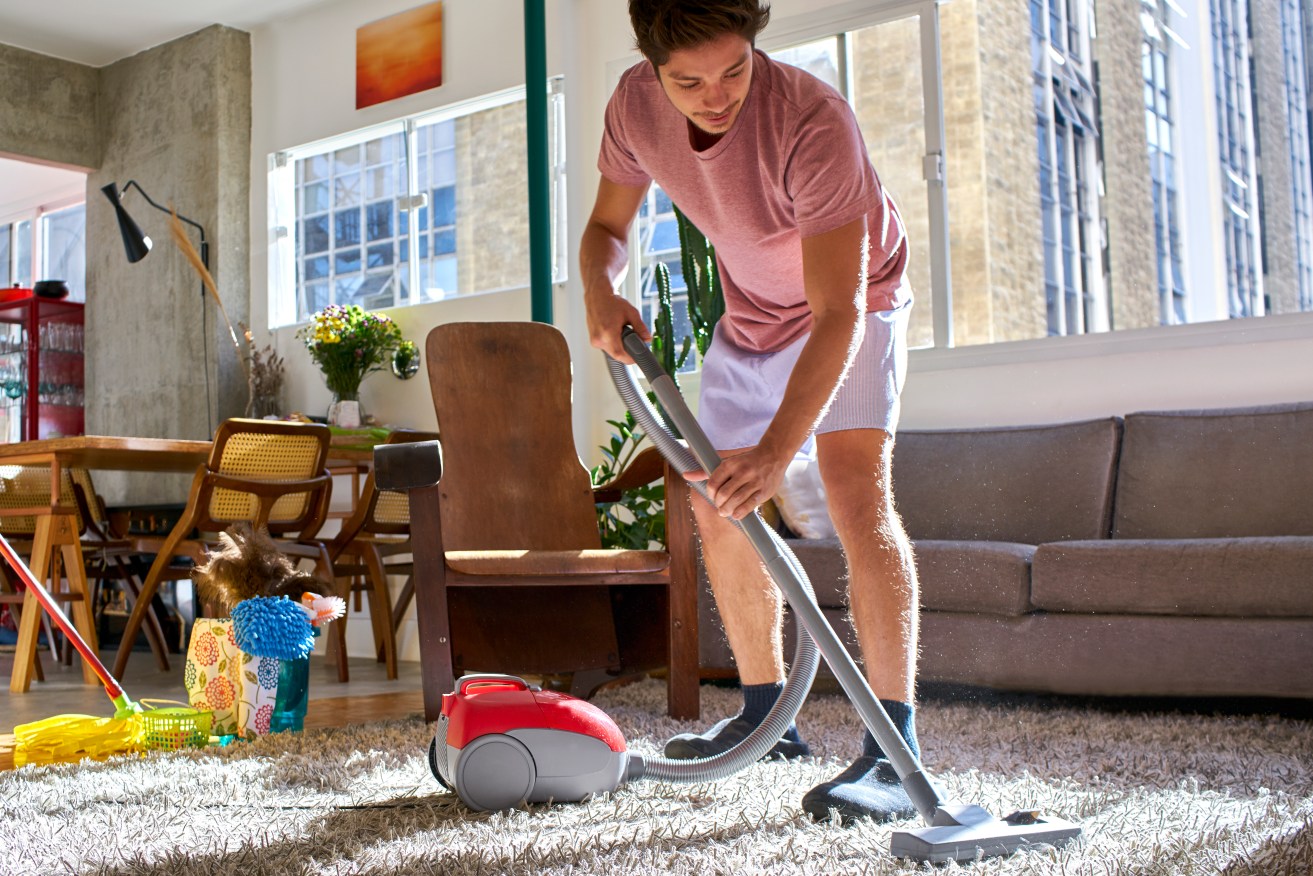Huffing and puffing during housework cuts cancer risk


Vacuuming and other chores done in speedy bursts are akin to high-intensity interval training. Photo: Getty
Are you so fed up with housework that it seems like it might give you a heart attack? Or cancer?
Here’s a neat trade-off. Pick up the pace – while mopping the floor or carrying groceries through the supermarket car park – and your risk of certain cancers can drop by nearly a third.
The key is to go all out, vigorously, for at least a minute – to the point where you’re huffing and puffing like an athlete at the finish line.
New research from the University of Sydney suggests that a modest total of 4.5 minutes of this domestic-related vigorous activity is all that’s required to cut those cancer risks by up to 32 per cent.
In a previous study by the same researchers, as we reported in December, found that these tiny kitchen-cleaner workouts were “associated with up to 40 per cent reduction in all-cause and cancer-related mortality”.
There was also up to a 49 per cent reduction in death related to cardiovascular disease.
What’s going on here?
As I wrote in December, most people aged 40 and over don’t engage in regular exercise or play sport. But they’re quick to point out – it’s not their fault.
Modern life is so horribly demanding. There simply isn’t time to take that daily walk. Or spend 10 minutes doing a high-intensity interval workout at the gym.
As we’ve previously reported, science has been investigating ways to shrink down the time it takes to get enough exercise to stop you from dying early.
The researcher
“VILPA is a bit like applying the principles of high-intensity interval training to your everyday life,” said lead author Professor Emmanuel Stamatakis of the Charles Perkins Centre.
In a prepared statement, he said adults who don’t exercise are at increased risk of developing certain cancers like breast, endometrial or colon.
But until recently “the impact of less structured forms of vigorous physical activity was unable to be measured”.
The study
The new study used data from wearable devices to track the daily activity of more than 22,398 ‘non-exercisers’ over seven days. The average age of participants was 62.
Researchers then followed the group’s clinical health records for close to seven years to monitor for cancer.
The idea was to test these bouts of everyday HIIT on overall cancer incidence. The researchers also looked at 13 cancer sites associated with physical activity.
These include liver, lung, kidney, endometrial, myeloid leukaemia, myeloma, colorectal, head and neck, bladder and breast cancers.
The results
The researchers found;
- 2356 new cancer events (1084 in physical-activity related cancer) over an average follow-up of 6.7 years
- A minimum of about 3.5 minutes of daily VILPA was associated with up to 18 per cent reduction in cancer incidence (compared with no VILPA)
- 4.5 minutes of daily VILPA was associated with up to 32 per cent reduction in physical activity-related cancer incidence
- The steepest gains in cancer-risk reduction were seen in people who did small amounts of VILPA compared to those who did none
- Benefits continued with higher levels of daily VILPA, particularly for physical activity-related cancers
- Most of the exercise bouts (92 per cent) occurred in spurts of up to minute.
Professor Stamatakis noted: “We are just starting to glimpse the potential of wearable technology to track physical activity and understand how unexplored aspects of our lives affect our long-term health – the potential impact on cancer prevention and a host of other health outcomes is enormous.”








